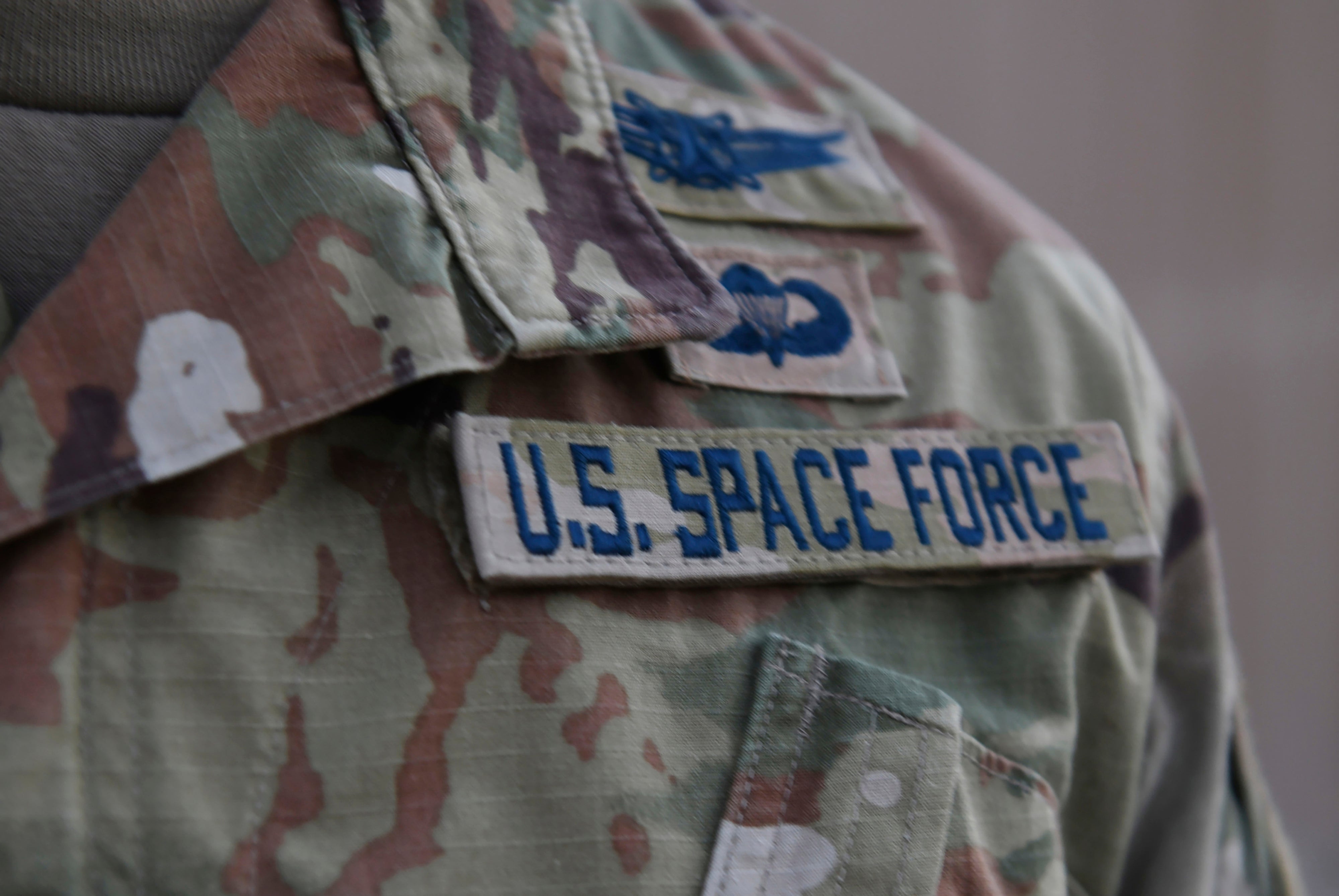US Space Force deploys troops to Arabian Desert
Sixth branch of the US military will send squadron to Qatar

The recently formed US Space Force has sent troops to the Arabian Peninsula, marking the first foreign deployment for the sixth US military branch.
A squadron of 20 airmen have been stationed at the Al-Udeid Air Base in Qatar, which is set to become an operational base for the Space Force.
The bases’s director, colonel Todd Benson, told The Associated Press that the United States needed to prepare for conflict in space.
“We’re starting to see other nations that are extremely aggressive in preparing to extend conflict into space,” explained Col. Benson. “We have to be able to compete and defend and protect all of our national interests.”
In a swearing-in ceremony earlier this month, 20 Space Force troops entered Al-Udeid, where American flags and massive satellites now make-up the Space Force’s first foreign base.
Soon several more squadrons will join the unit of “core space operators” who will run satellites, track enemy maneuvers and try to avert conflicts in space from the Arabian Peninsula.
“The missions are not new and the people are not necessarily new,” said Col. Benson, who declined to name which “aggressive” nations his troops will monitor, and potentially combat.
The force, spearheaded by president Donald Trump, represents the sixth branch of the US military and the first new military service since the creation of the Air Force in 1947.
It has provoked scepticism amongst lawmakers in Congress, as well as satire - in part thanks to a logo that commentators compared to the “Star Trek” symbol.
The Space force was also derided in a 10-part Netflix show called “Space Force”, that starred actor Steve Carell as the head of the military branch.
The real Space Force is projected to have 16,000 troops and a 2021 budget of $15.4 billion (£11.9 billion), fuelling accusations amongst American lawmakers that its is merely a vanity project for the president prior to November’s presidential election.
Still, the decision to deploy Space Force personnel at Al-Udeid follows months of escalating tensions between the US and Iran, sparked by Mr Trump’s unilateral withdrawal from Iran’s nuclear accord and the US killing of an Iranian general.
Iran has been accused of jamming satellite and radio signals, as well as space satellites, which have lead to sanctions imposed by the Trump administration earlier this year.
“The military is very reliant on satellite communications, navigation and global missile warning,” said captain Ryan Vickers, a newly inducted Space Force member at Al-Udeid.
American troops, he added, use GPS coordinates to track ships passing through strategic Gulf passageways “to make sure they’re not running into international waters of other nations.”
The Strait of Hormuz, the narrow mouth of the Persian Gulf through which 20% of the world’s oil flows, has been the scene of a series of tense encounters, with Iran seizing boats it claims had entered its waters. One disrupted signal or miscalculation could touch off a confrontation.
“It’s not that hard to do, but we’ve seen Iran and other countries become pretty darn efficient at doing it on a big scale,” said Brian Weeden, an Air Force veteran and director of program planning at the Secure World Foundation, which promotes peaceful uses of outer space. “There's a concern Iran could interfere with military broadband communications."
Responding to questions from the AP, Alireza Miryousefi, a spokesman at Iran's mission to the United Nations, said “Iran will not tolerate interference in our affairs, and in accordance with international law, will respond to any attacks against our sovereignty." He added that Iran has faced numerous cyber attacks from the U.S. and Israel.
Failing an international agreement that bars conventional arms, like ballistic missiles, from shooting down space assets, the domain will only become more militarized, said Daryl Kimball, the executive director of the Washington-based Arms Control Association. Russia and China have already created space force units and the Revolutionary Guard's sudden interest in satellite launches has heightened U.S. concerns.
Still, American officials insist the new Space Force deployment aims to secure U.S. interests, not set off an extraterrestrial arms race.
“The U.S. military would like to see a peaceful space,” Benson, the director of Space Force troops stationed in Qatar, said. “Other folks’ behavior is kind of driving us to this point.”




Bookmark popover
Removed from bookmarks